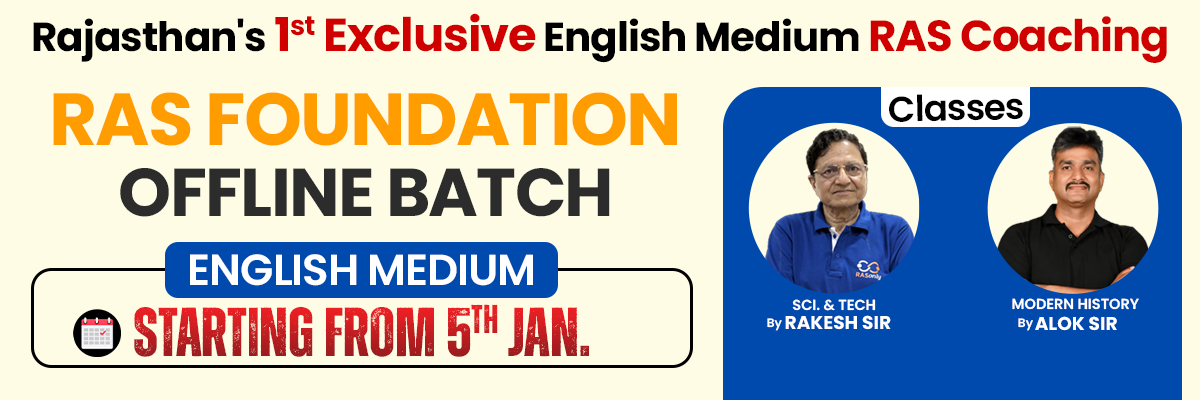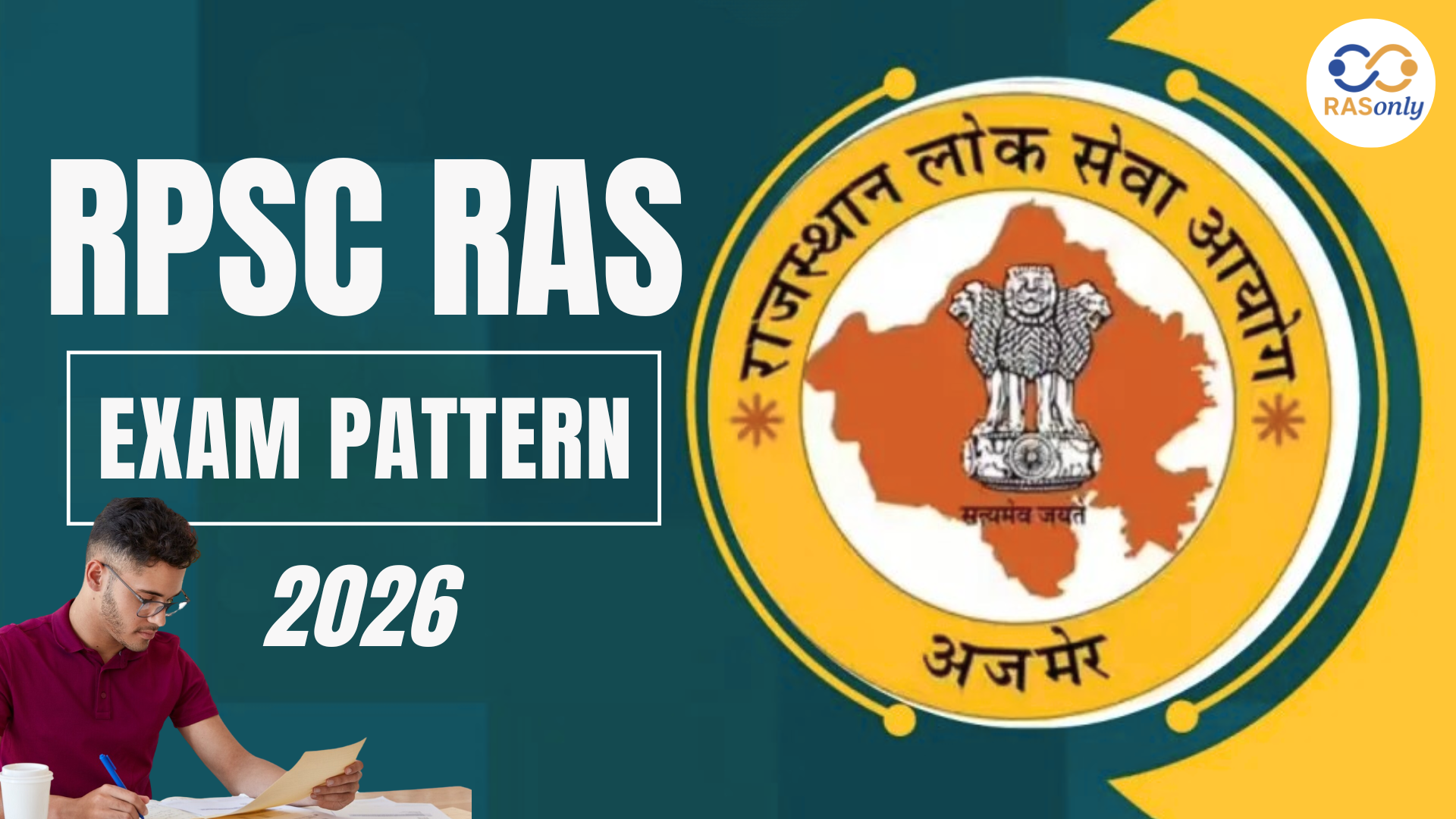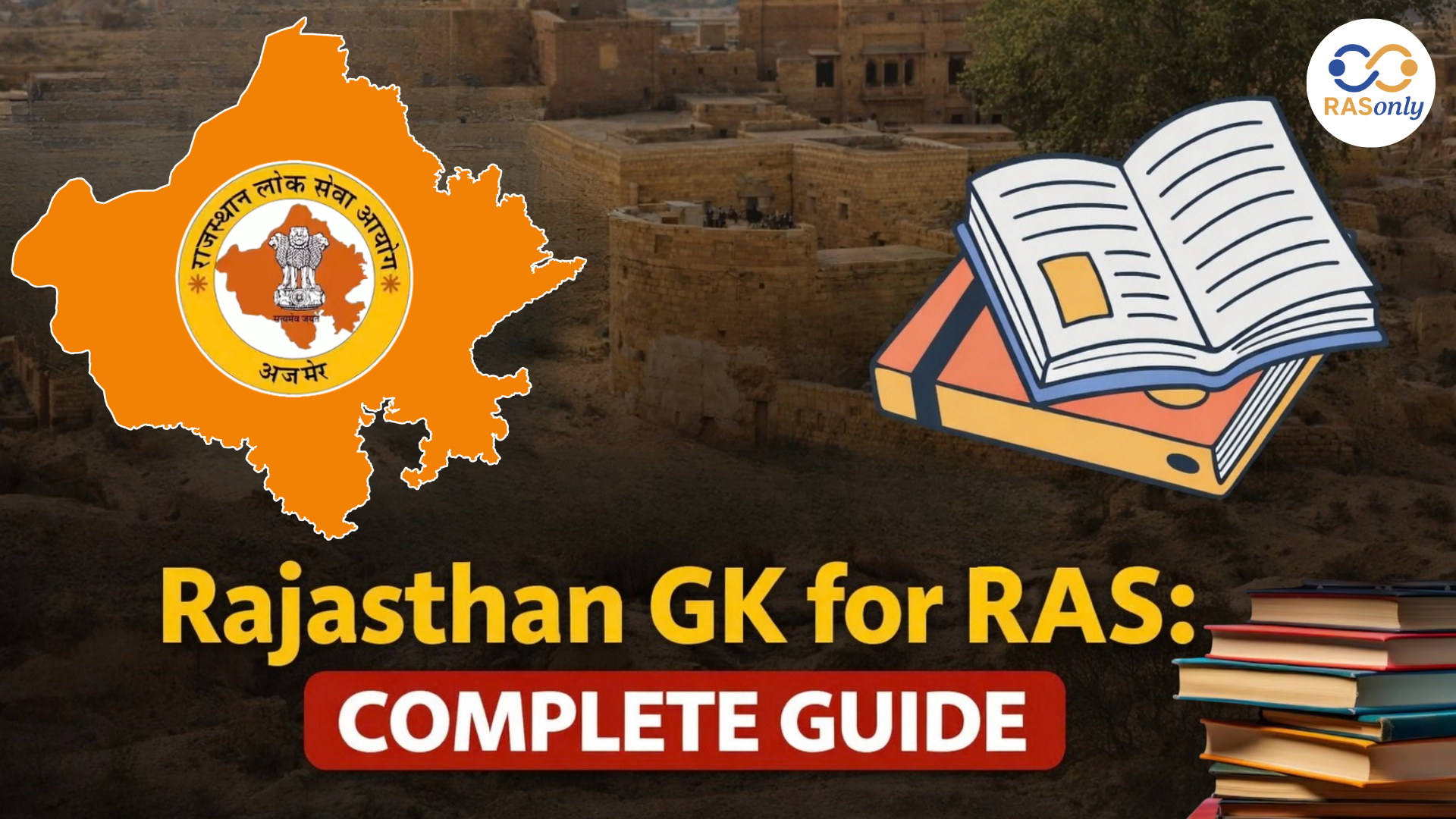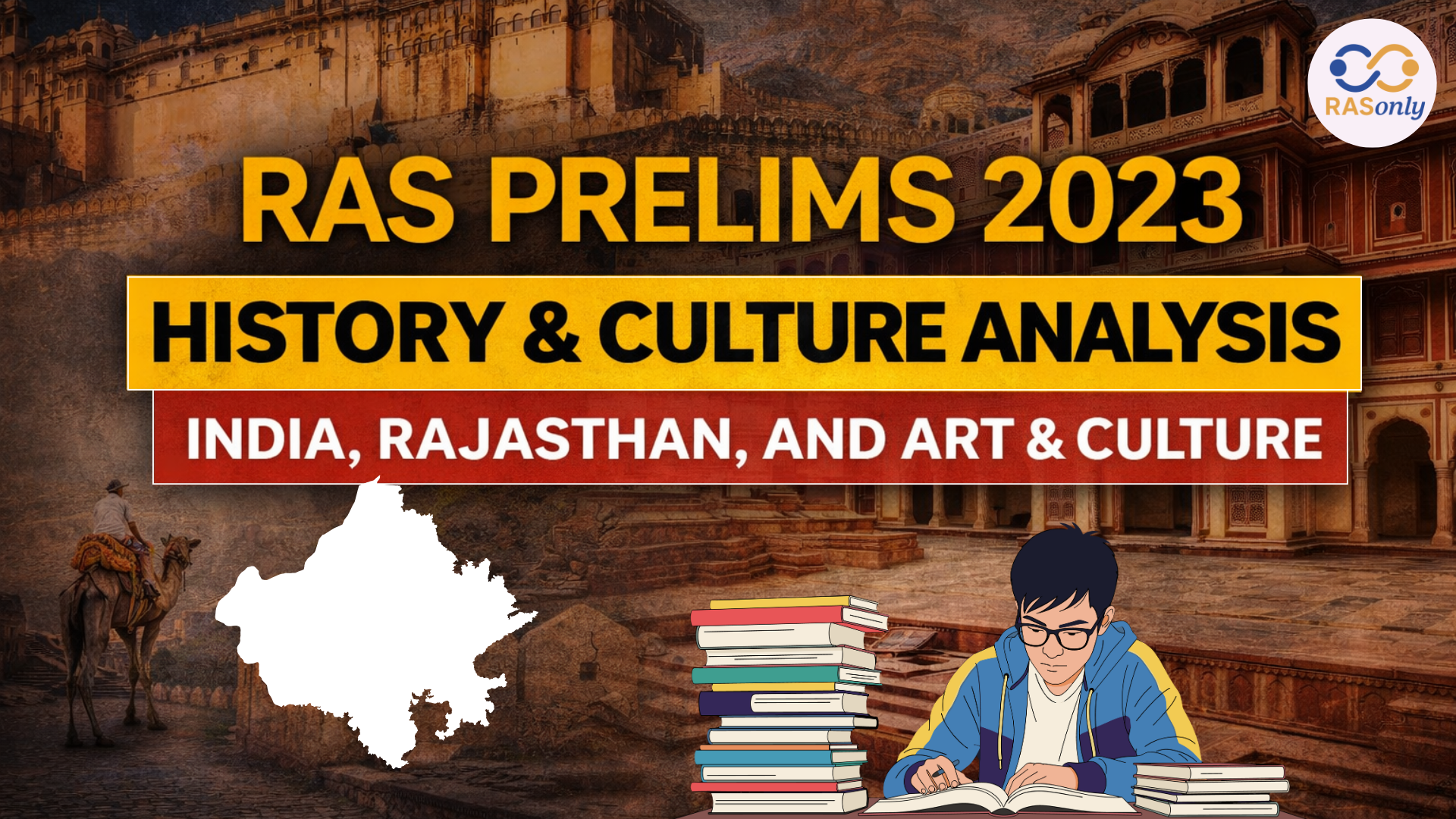RPSC RAS 2026 Subject Wise Exam Pattern for Prelims, Mains & Interview Details
- >
- RAS Preparation Resources
- >
- Important Medicinal Plants in Rajasthan
Important Medicinal Plants in Rajasthan

Get in Touch with RASonly!

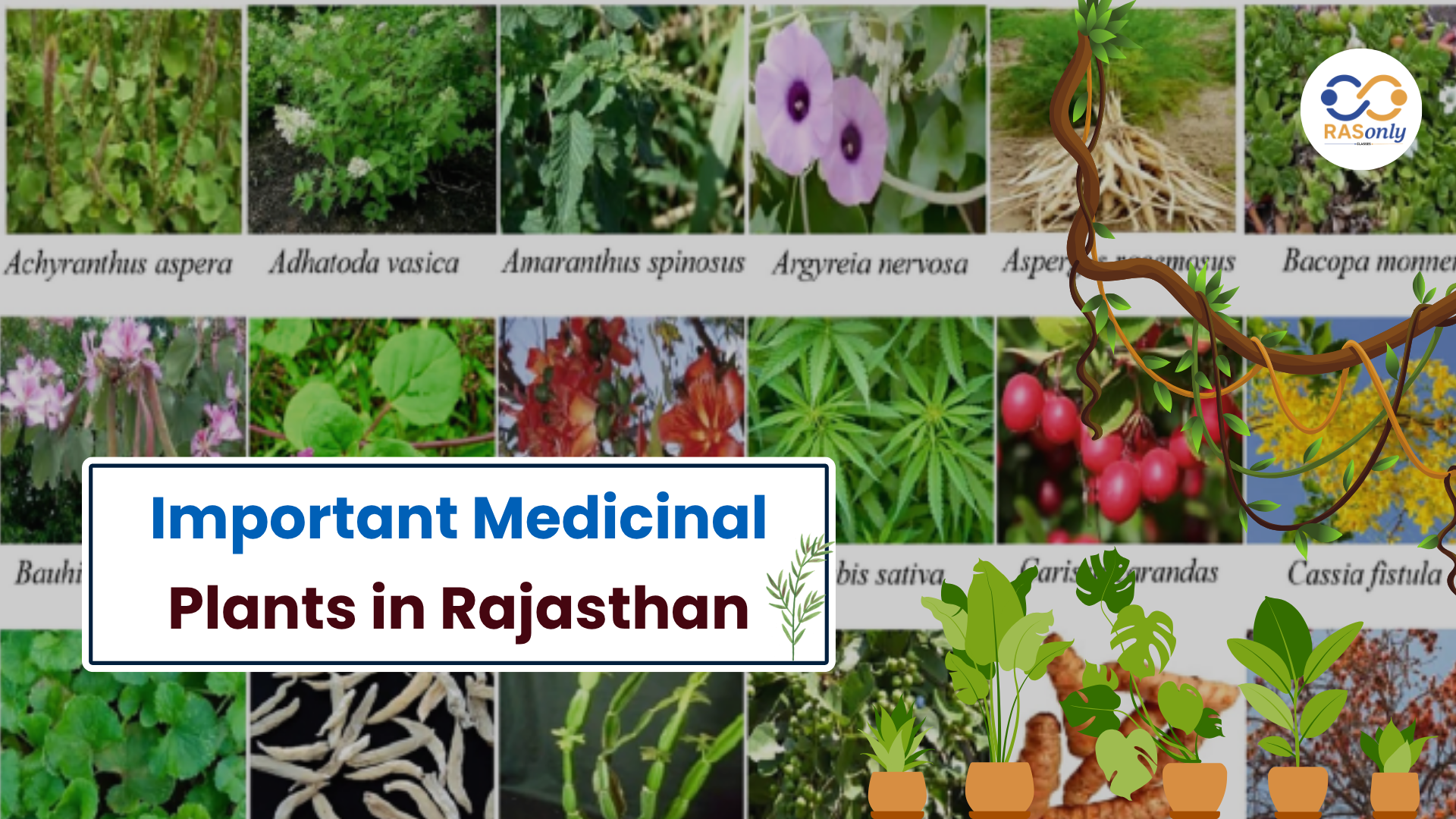
Rajasthan being dry and semi-arid is extremely diverse in life besides having a biodiversity of over 1900 species of medicinal plants. The plants have formed part of the traditional healing methods such as Ayurveda and folk medicine. People in different communities in the state still use these natural remedies to cure several diseases. The ensuing commercial demand however has caused the overexploitation and the loss of their habitats, threatening most of the valuable species. He says that understanding and preservation of these resources is essential to the health, economy and heritage.
Key Points for RPSC RAS Mains
Characteristics of Medicinal Plant diversity of Rajasthan
- The number of flowering plant species is 2412 in Rajasthan out of which 1900 are medicinal.
- Plants grow in arid or semi arid areas, especially in Aravalli and Thar Desert.
- These are also widely applied in the Ayurveda, Siddha and Unani medical practice.
- A text dating to ancient times, called Charak Samhita records some 340 such herbs.
- Traditional knowledge accompanying medicinal usages is very deep among the local tribal persons.
Threatened Medicinal Plants in Rajasthan
Critically Endangered Species:
|
Botanical Name |
Local Name |
|
Chlorophytum borivilianum |
Safed Musli |
|
Eulophia ochreata |
Salam Mishri |
|
Tribulus rajasthanensis |
Gokhuru |
|
Commiphora wightii |
Guggal |
|
Cochlospermum religiosum |
Galgal |
|
Pterocarpus marsupium |
Bijasal |
Endangered Species:
Includes species like:
- Neurada procumbens (Chapari)
- Ephedra foliata (Sua-phogaro)
- Gymnema sylvestre (Gudmar)
- Boswellia serrata (Salar)
Vulnerable Species:
Examples:
- Gloriosa superba (Kalihari)
- Terminalia arjuna (Arjun)
- Barleria acanthoides (Vajradanti)
- Ocimum gratissimum (Ban-Tulsi)
Top 10 Medicinal Plants and Their Uses
|
No. |
Botanical Name |
Local Name |
Uses |
|
1 |
Azadirachta indica |
Neem |
Skin diseases, leprosy, ulcers, blood purifier |
|
2 |
Aloe vera |
Gheekumari |
Rheumatism, skin problems |
|
3 |
Bacopa monnieri |
Brahmi |
Memory tonic, epilepsy, nerve disorders |
|
4 |
Aegle marmelos |
Bel |
Diarrhea, fever, asthma |
|
5 |
Asparagus racemosus |
Shatavari |
Aphrodisiac, eye & kidney diseases |
|
6 |
Withania somnifera |
Ashwagandha |
Tonic, rheumatism, weakness, ulcers |
|
7 |
Tinospora cordifolia |
Giloy |
Jaundice, fever, diabetes |
|
8 |
Ocimum basilicum |
Ram Tulsi |
Cough, fever, digestion, diuretic |
|
9 |
Terminalia arjuna |
Arjun |
Heart disease, blood purification |
|
10 |
Tecomella undulata |
Rohida |
Abdominal and liver complaints |
Conventional Usage and Approach
- Gathered ethnomedicinal information was based on tribal elders and local healers.
- It is used for boiling, pounding, pastes, decoctions, etc.
- These cures are transferred by word and mouth traditions and folklore practices.
Conservation Challenges
- Over harvesting as demanded by the market.
- Urbanization and climate change deprived them of habitat.
- The absence of official documentation of a high number of species.
- Last minute requirements of in-situ and ex-situ conservation measures.
Conclusion for RPSC RAS
Medicinal Plant wealth of Rajasthan is not only a cultural but also a medicinal resource. Not only does it play a vital role in biodiversity but it is also vital in maintaining the traditional knowledge systems. Sensitizing and creating sustainable practices will safeguard these priceless natural resources to the next generations.
Also Read: Biodiversity in Rajasthan
FAQs for RAS & RPSC
Post Category
- RAS Salary
- Result
- RAS Admit Card
- RAS Job
- RAS Cutoff
- Preparation Tips
- RAS Answer Key
- RAS Exam Analysis
- RAS Syllabus
- RAS Previous Year Papers
- RPSC RAS Exam Pattern
- RAS Interview
- RAS Mains Exam Date
- RAS Vacancy
- RAS Test Series
- RAS Best Books
- RAS Preparation Resources
- RAS Coaching Centre
- History
- Polity
- Geography
- Economics
- Science
- Art and Culture
- RPSC RAS Application Form
- RPSC RAS Notification
RASonly Interview Guidance Program

Mr. Ashok Jain
Ex-Chief Secretary Govt of Rajasthan
- IAS officer of the 1981 batch, Rajasthan cadre.
- Passionate about mentoring the next generation of RAS officers with real-world insights.
- Got retired in Dec 2017 from the post of Chief Secretary of the state of Rajasthan.

Mr. Guru Charan Rai
Ex-ASP / SP in Jaisalmer
- Guru Charan Rai, IPS (Retd), retired as Inspector General of Police (Security), Rajasthan, Jaipur in 2017.
- Served as ASP and SP in Jaisalmer, Nagaur, Sri Ganganagar, Sawai Madhopur, Dausa, Sikar, and Karauli.
- He also held key positions as DIGP and IGP in the Law and Order division.

Mr. Rakesh Verma
Ex-IAS Officer, B.Tech, MBA, and M.A. (Economics)
- IAS officer of the 1981 batch and retired in Chief Secretary Rank.
- Civil servant of high repute and vast experience.
- Has been teaching UPSC CSE subjects for the last six years.
Related Post
Daily Current Affairs for RAS Exam Preparation 2026
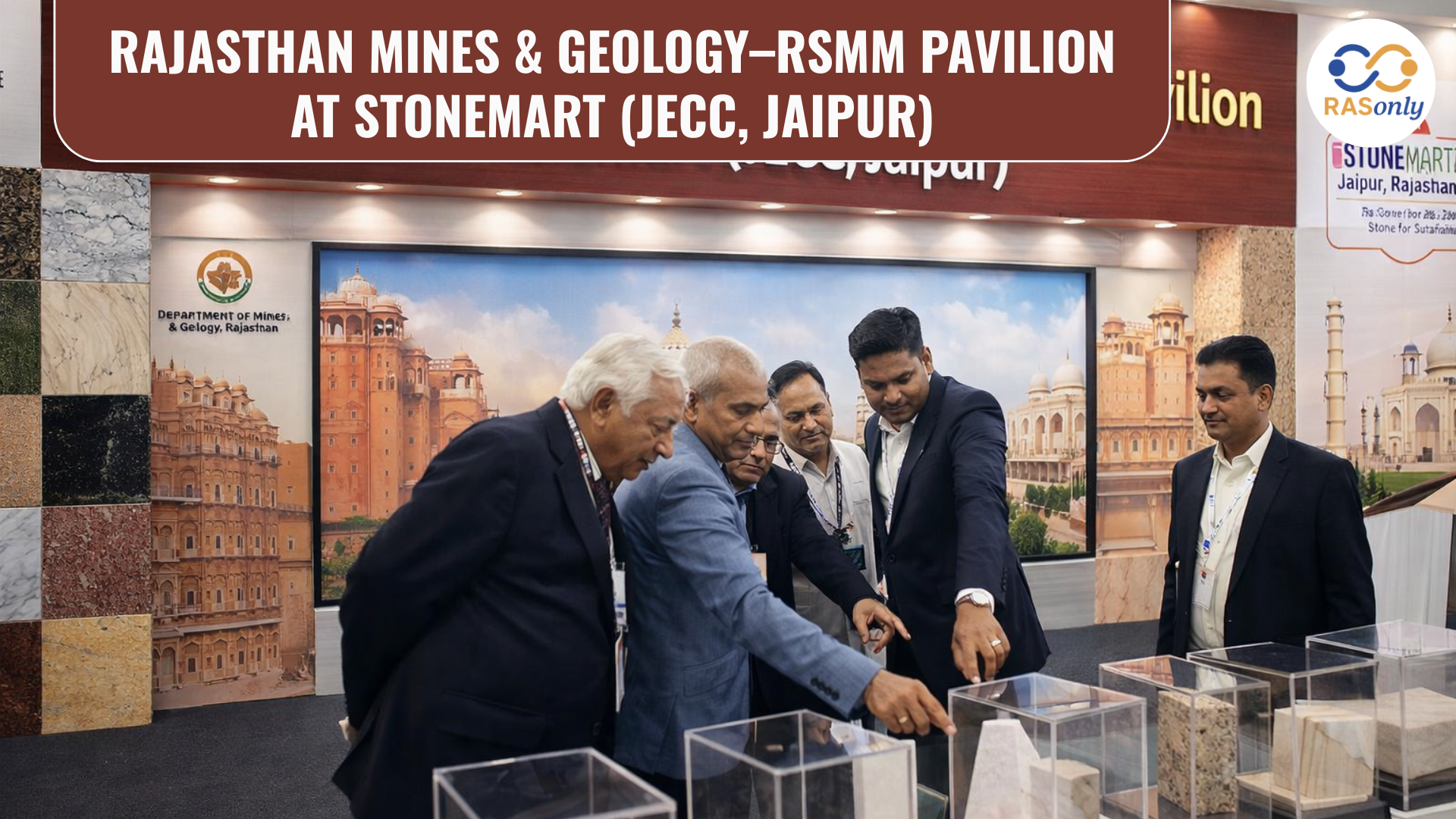
Rajasthan Pavilion Shines at Stone Mart Jaipur 2026
February 07, 2026
Rajasthan Achieves 3,000 MW Under PM-KUSUM Scheme
February 07, 2026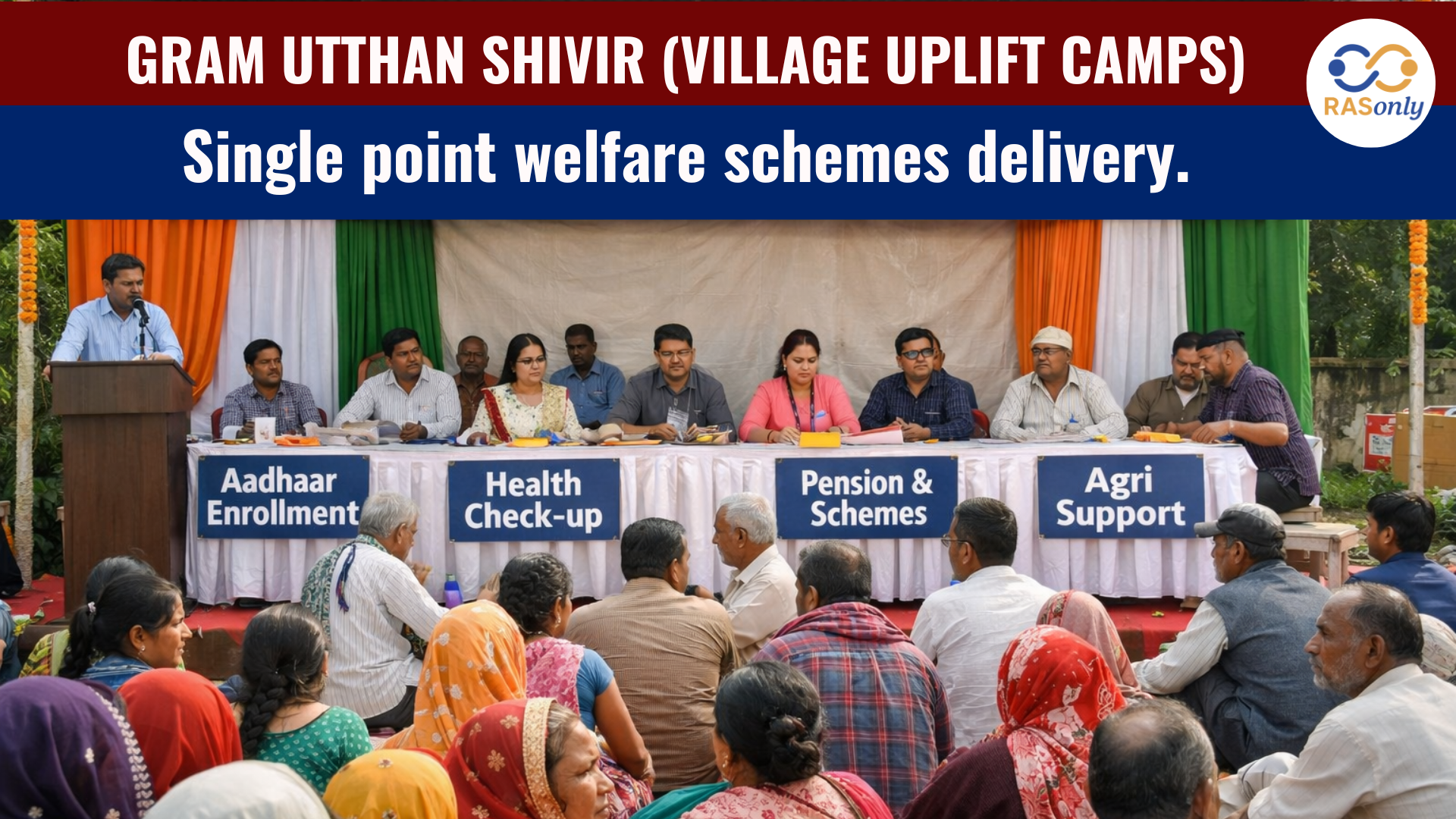
Gram Utthan Shivirs Strengthen Rural Governance in Rajasthan
February 07, 2026
Jaipur Badminton: 72-Minute U-15 Final Creates Record
February 06, 2026👉🏻 Register Today to Join Classes! 👍🏻
- Team RASOnly -
🎯 Benefits of RASOnly Coaching:
- ✅ 1:1 Mentorship with RAS Officers
- ✅ Experienced and Expert Faculty
- ✅ Free Library Access
- ✅ Daily Minimum 4 Hours Must
- ✅ Comprehensive Study Material
- ✅ Regular Tests & Performance Analysis
- ✅ Personalized Guidance & Doubt Solving
- ✅ Online & Offline Class Options
- ✅ Affordable Fees with Quality Education
Key Highlights:
- 👉🏻 3-Day Refund Policy
- 👉🏻 New Batch Starting from 04 August
- 👉🏻 Registration Amount: Only ₹1000




